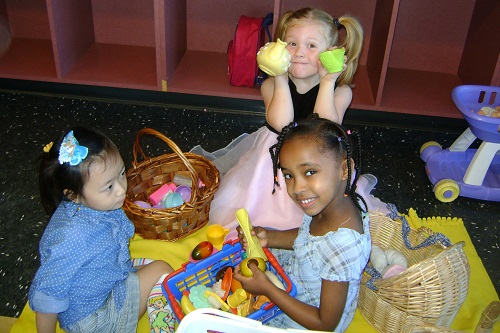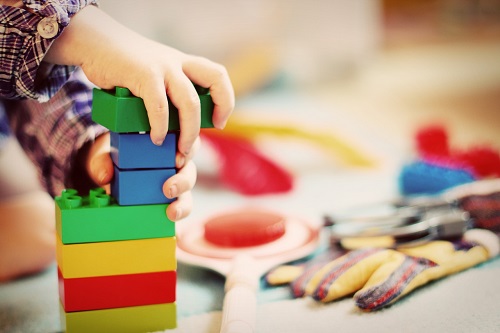Preschool (voorschool) is a government-subsidised schooling system for children aged 2.5 to 4. More structured than a playschool, the voorschool works in association with their local primary school (basisschool) and is designed to equip children – in a fun way – with the basic skills for school life.Attending a preschool is not compulsory, but the perceived benefits of a preschool education have led to a broadening of access for children in Amsterdam. From 2018, children in day care (kinderdagverblijf) are also entitled to a preschool education. This means that children whose parents work full time can still benefit from the programme. It is advisable to discuss with your local day care centres how they are providing for this if you would like your child to benefit.
Most peuterspeelzalen (playschools) have now become voorscholen in an attempt to unify and regulate the provision. Henceforth, all voorscholen and peuterspeelzalen will come under the umbrella of kinderdagverblijft (nursery/day care) and all children will be entitled to 15 hours of childcare.
The philosophy of the teaching and learning at the preschool varies and normally marries with the primary school they feed into. If you are interested in a Montessori education for your child, for example, there are many preschools in Amsterdam offering this.
For preschool education in languages other than Dutch, many international schools offer a nursery programme, usually from the age of three. These are fee-paying.
What are the advantages of preschool?
Heavily subsidised by the government, the preschool is seen as a great start for all children and acts as a valuable early intervention for those with language delays or from deprived backgrounds. The routines and rules of the playschool help prepare children for primary school, and the engaging activities improve their attention span, and social and communication skills.
The strong focus on language development makes preschool education ideal for international children, who normally pick up Dutch quickly in this immersive environment.
Preschool is also a great way for your child to get to know other children living locally, many of whom will go on to attend the connected primary school. Parents may also appreciate the community feel of the preschool and the opportunity to meet other parents in the neighbourhood.
What are the opening hours?
Children attend for around 3 hours a day, 2-4 days a week in 2017. This will rise to 3-4 days from 2018. Some preschools run afternoon sessions but most operate in the morning to coincide with the school drop-off for older siblings.
Who will look after my child?
From 2018, all permanent staff must have a diploma in childcare. The group leaders are teachers and are highly skilled. The group sizes for preschool education are capped at 16. For every eight children, there must be at least one qualified member of staff. A parent or assistant is also often present.
Preschools receive annual announced and unannounced visits from inspectors to ensure that the education and health and safety of the children is of a high standard.
How can I find a preschool?
All preschools must be registered in the Landelijk Register Kinderopvang (National Childcare Register). In this online directory you can also find more information about each establishment and download the inspection report (in Dutch).

All children and babies registered in the Netherlands have regular appointments at the GGD consultatiebureau where they receive their immunisations and their growth and development is checked. The GGD can give you a list of voorscholen in your area and answer any questions you have about what is best for your child. You can also use the online Schoolwijzer directory to find preschools.
You can find your nearest consultatiebureau with this interactive map.
How can I visit a preschool?
As the children stream in throughout the year, there may not be an official open day for your shortlisted preschools. If this is the case, contact the school and ask if you can visit. Some centres will let you stay for a bit with your child to see how they like the place.
Before your child starts at the preschool, you will have an intake meeting with the teacher. This is an opportunity to ask any questions you have and to discuss your child’s personality, interests and needs.
How much does preschool cost?
From 2018, all parents must pay an income-based contribution. Parents on the minimum wage will be fully subsidised, even if they are not entitled to childcare benefits.
Parents using daycare are now also entitled to voorschool provision and may also be able to claim back some of the costs. The council will fund a maximum of 15 hours of voorschool.
Only parents who both work, are studying, are following an integration course, or are seeking work, are entitled to childcare subsidies.
The Belastingdienst (Tax Office) and the government website have more information on this in English.
What is an ‘indication’?
The GGD Parent and Child Centre that your child attends can issue an ‘indication’ (indicatie) relating to your child’s needs, giving them priority at a preschool.
In the past, some children of expatriates received language indications because Dutch was not their first language. However, the focus has now shifted to language development, independent of the native tongue. Children with limited exposure to language and reading, and who have reduced communication skills, are now targeted.
Children whose parents have a low education level are also eligible for an indication. From 2019, the indication will also take into account the neighbourhood a family lives in and their household income.
Does the preschool give your child priority at the local primary school?
The way in which primary schools select their intake changes frequently and may vary from school to school. Priority for the primary school attached to your preschool is normally given if you have a GGD indication. Some preschools are piloting a system where children who have attended for more than 8 months get priority at the attached school.

You can find out more about the primary school application procedure in the Netherlands here.
What sort of activities will the children do?
Sessions tend to have a relaxed, phased beginning where parents can join in with the children and settle them in. Circle time normally signals the official start to the session and parents are then expected to leave.
Opportunity is provided for the children to develop their listening skills and to learn how to participate respectfully in activities by sharing, waiting, putting their hand up and taking turns. These skills are intended to prepare them for primary school, easing the transition.
Preschools encourage the children to learn through play and focus on a different theme each term. Activities include story time, singing, games, crafting and free play.
The preschool celebrates festivals such as Easter, Sint Maarten and Sinter Klaas with the children and organises activities around these events.
Children who are celebrating their birthdays at the preschool can also expect lots of attention, including a birthday hat, birthday chair, and plenty of singing. The parent usually stays for the entire session and is normally expected to bring in small treats for the other children.
What will my child eat at preschool?
Children attending preschool in the morning will normally have a fruit snack around 10am and then a sandwich at midday. Schools in the afternoon will also give the children some fruit mid-session.
Meal times at the preschool are an opportunity for the children to develop their social skills and learn how to behave at the table. Some preschools ask you to bring food and some provide it for a modest fee. The food is simple but healthy.
What about toilet training?
The preschool will not toilet train your child for you but your child is likely to learn more quickly from the routines at the school and from watching older children.
Toilets are often communal and an integrated part of the play room so that teachers can supervise if needed. A changing mat is provided for younger children and visiting baby siblings.
If your child is not yet toilet trained, the staff will change heavily-soiled nappies. The school will keep spare clothes for children who have accidents and will bag up the wet clothes for you to wash at home. If your child has only just begun to wear underwear, it is a good idea to bring a spare set of clothes for them so that accidents can be dealt with swiftly.
Is preschool a good childcare option?
Preschool is of limited use as a childcare solution as children only attend for a maximum of 3.5 hours a day, up to four days a week. Preschools are closed during school holidays.
Parents are also required to help out with the running of sessions. The group leader will organise a roster system. Once or twice a month, you can expect to be called upon to lend a hand. Parents also participate in seasonal celebrations and must accompany their child on excursions. You may also be asked to attend committee meetings.
Despite these time commitments, preschool is cheaper than most other forms of childcare and may form a useful part of your provision if your work is flexible.
You can read more about the childcare options in the Netherlands here.
Glossary
GGD – Gemeentelijke Gezondheidsdienst. The municipal health service.
KOT – Kinderopvangtoeslag. Childcare subsidies.
OKC – Ouder en Kind Centrum. The sector of the GGD that provides advice about the health of babies, children and teenagers.
Peuterspeelzaal – Playschool. Most peuterspeelzalen have now become voorscholen and adopted a more unified pedagogy.
VVE – Voor en vroegschoolseeducatie. Pre and early years education.
Has your child attended preschool in Amsterdam? Share your experiences in the comments below, or answer the questions here to be featured in an interview!


